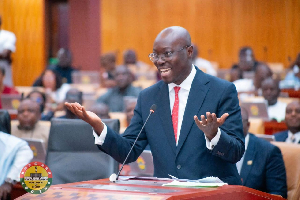Andrew Quayson, a member of the Public Utilities Regulatory Commission (PURC) said on Friday that the utility service companies should remain state-owned in view of the strategic role they play in economic development.
Quayson said the companies could operate close to efficiency levels, if political influence was removed and incentives provided to minimise cost.
He told a forum organised by the Ghana Institute of Management and Public Administration on the theme: "The case of the Effect of Pricing of Public Utility Services on the Socio-economic Development of the Country."
The forum was the first in a series that GIMPA is organising to create a platform for public discussion on topical national issues.
Quayson said although private sector participation in the running of utility services in developing countries may be the best option, such participation should be limited to service and management contracts or lease or concession.
The Commissioner said the weak financial position of the state-run utilities, due to years of under pricing of tariffs, had contributed to their inability to maintain and rehabilitate existing systems to improve on their operations.
Quayson said tariffs granted the electricity and water companies in May were only about 60 per cent of the economic and efficient rates for their services.
The PURC did not want to accept a one steep increase as demanded by the utilities but rather adopted a gradual approach to move the rates to economic and efficient rates in tandem with a transitional plan to ensure improved service by the end of 2003.
The transitional framework called for a reduction in operational losses of electricity from 27 to 18 per cent and power outages not exceeding 30 customer-hours lost per annum for industrial consumers and 100 customers-hours per annum for residential consumers.
However, Quayson, said the utilities would only be able to provide these improved services if the government financed the gap between current tariff levels and economic rates and also funded key systems improvement projects over the transitional period.
He said the current subsidised tariff structure did no benefit the poor, especially those who live in compound houses, and who do not have access to water and electricity.
General News of Sunday, 26 August 2001
Source: --












